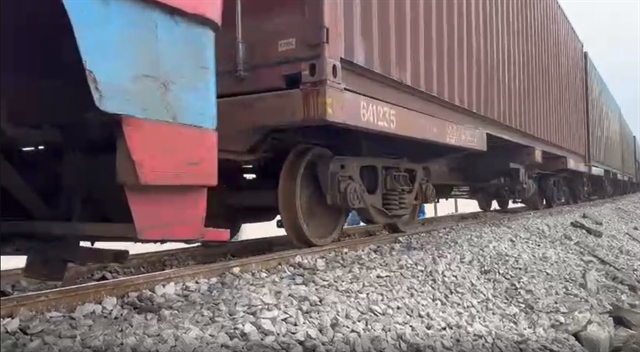 Society
Society


|
| Currently, Việt Nam has 35 enterprises involved in the railway sector, but the majority rely heavily on imported machinery and parts. VNA/VNS Photo |
HÀ NỘI — The Ministry of Construction has proposed a list of railway industry services and products to be developed through State commissions and by assigning tasks to private companies.
The proposal aims to lay a foundation for Vietnamese agencies and state-owned organisations to assign tasks or place orders with domestic enterprises to research, manufacture and develop products, gradually increasing the rate of local content.
The ministry is seeking feedback on the railway sector's localisation proposal.
The Government plans to focus on procuring materials, equipment and railway components that have large market potential and are suited to Việt Nam’s current technological capabilities, production levels and available workforce.
The ministry has outlined eight key product and service categories that will be divided between two groups.
The first group will research and develop standards, products and training and technology transfer.
The second group will handle manufacturing and assembly of railway equipment such as rails, turnouts and accessories, railway communication and signalling systems, railway traction power supply systems and railway vehicles.
Despite some progress in railway industrial development, the ministry notes that domestic capabilities remain limited to merely low-speed vehicle maintenance and repair.
Most mechanical equipment and materials still need to be imported while local industries struggle with outdated technologies and a lack of standardisation.
Currently, Việt Nam has 35 enterprises involved in the railway sector, but the majority rely heavily on imported machinery and parts.
The lack of infrastructure for electrified railways and skilled personnel is also a significant hurdle for modern railway development.
According to the ministry, Việt Nam needs special policies to prioritise and encourage the development of the domestic railway industry.
These policies would ensure a stable market for locally manufactured products across four key segments: infrastructure construction, signalling and communication systems, rolling stock and electric traction systems.
With this new move, Vietnamese enterprises can gradually master railway system design, construction, maintenance and manufacturing of materials, laying the groundwork for an increasingly self-sufficient and modern railway sector. - VNS